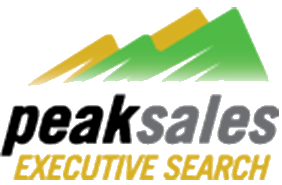Sales contests are a proven way to create excitement in the sales team. They add variety to the year and help to make the day to day of sales more exciting.
It’s essential to be thoughtful when creating your sales contest. With the wrong approach, it’s more than possible to create harmful incentives and hurt team morale. Use this guide to design a sales contest that delivers excitement without any of the side effects!
What is A Sales Contest?
A sales contest is a time-honored tradition in the sales profession. Typically, a sales contest runs for 30 days. That said, some companies may run contests for longer periods if they have a longer sales cycle.
The sales contest usually includes an incentive beyond cash – it might be a free trip to a resort, gift cards to a great restaurant, or something else. During the contest, it’s common to have leaderboards or reports that show how everybody is performing.
Sales contests work because they tap into the competitive nature of many salespeople. Unlike an annual sales quota, a sales contest usually has a short timeline that is much easier to meet.
4 Ideas For Your Next Sales Contest
The first step to launching an effective sales contest is choosing the right sales idea. It all depends on the type of sales behavior you’re seeking to encourage.
1) The Rejection Therapy Contest (“Most Nos”)
A few years ago, Jia Jiang started an unusual experiment – 100 days of rejection. Jiang made a series of unusual requests like asking to play soccer in a stranger’s backyard and making the announcements on a Southwest flight. He later published a best-selling book, “Rejection Therapy,” explaining his insights.
The key principle behind Jiang’s success was a willingness to face rejection. In sales, it’s often necessary to make requests and face rejection to achieve your goals.
To build a sales contest around this concept, keep the rules simple. For example, your contest may focus on cold call prospecting. In that case, to earn a “no” requires the salesperson to speak to a live person and get rejected. The winner is the person who gets the most no’s on sales calls during the contest.
This sales contest approach works because it makes rejection into a game. By being willing to face more no from prospects, it’s almost inevitable that your team will make more sales as a result.
2) Most Sales Meetings Scheduled In Two Weeks
This sales contest idea focuses on a different activity – getting meetings booked! This type of sales contest is particularly suited for sales development representatives already focused on setting meetings.
Set some rules on what type of meetings qualify for the contest. For example, you may exclude meetings with current customers from the contest.
3) The Most Referrals Contest
A different approach may be valuable for a mature sales team who regularly hit their quota. With this contest idea, you’re encouraging your sales team to look for opportunities in your current customer base. Like the previous contest ideas, this contest reinforces good sales habits – regularly asking for referrals – that will close more sales over time.
It’s smart to put a few rules around a referral contest. Award contest points for each conversation held with a referred person. Simply gathering contact information is not enough! In addition, you might award double points if the referred person progresses to the next step of the sales process like agreeing to a demo of your software.
4) Highest Sales Contest
We saved the most common sales contest for last: the revenue based sales competition. In this contest, you simply measure the number of new sales (or the dollar value of new sales generated). For this contest to be meaningful, calibrate the contest duration to your typical sales cycle.
In retail sales, it might take less than an hour to close a sale while B2B sales can take much longer to close. If your sales person typically closes 1 sale per day, then a 30 day sales contest makes sense. On the other hand, if a sale usually takes three months, then you might want to focus on the dollar value of the sale.
The Anatomy of Highly Effective Sales Contests
Choosing the end goal for your sales contest is the most important decision. Use these tips to fine tune the parameters of your contest. For inspiration, think about major league sports. Every popular sport is defined by a set of rules. Likewise, applying clear guardrails to your sales contest helps to keep the event focused.
Time Your Sales Contest Effectively
Deciding when in the year to hold a sales contest is an important test. Think about existing sales deadlines like year-end and quarter-end as a starting point. For example, if October is typically your best sales month, consider scheduling your sales contest for September to kickstart the season’s momentum.
Set Clear Rules For Success
Before the contest starts, lay out clear rules for what counts. For example, if your sales contest is based on the number of sales meetings, you may want to clarify meetings with existing customers do not count toward the contest.
Use A Leaderboard For Daily Motivation
During the contest, share a daily leaderboard report with your sales team. In many cases, it should be possible to run a report from your customer relationship management (CRM) system. Sending daily progress reports is a great way to keep motivation levels high throughout the contest.
Consider Secondary Prizes
Most contests offer multiple rewards – like gold, silver and bronze – and you should consider this principle in your sales contest as well. Keep in mind that there should be a clear distinction in value between each reward level. For example, the gold reward might be a resort vacation trip, the silver reward could be a $200 gift card to a local restaurant and the third place could be a bonus vacation day.
Hand Out The Sales Rewards Quickly
When the sales contest comes to an end, it is vital to give out the rewards quickly. For example, consider ending the sales contest on a Thursday so that you can announce the winners on Friday.
The Limitations of Sales Contests
While powerful, sales contests do have some limitations. They are typically focused on helping to encourage individual performers to boost their sales effectiveness. A sales contest is not a replacement for a capable and caring sales manager coaching your sales professionals. Likewise, a sales contest is not suited for solving strategic challenges like improving collaboration between sales and marketing.
Hiring a new sales leader is one of the best ways to make progress on your strategic sales goals. Peak Sales Executive Search uses a structured scientific process to identify sales leaders with a strong track record. Contact us today to discuss your sales recruiting needs.
Visit our Insight section for further information.

